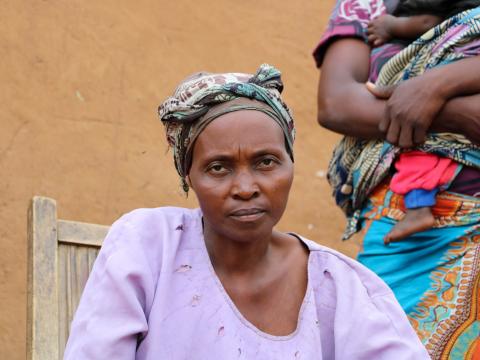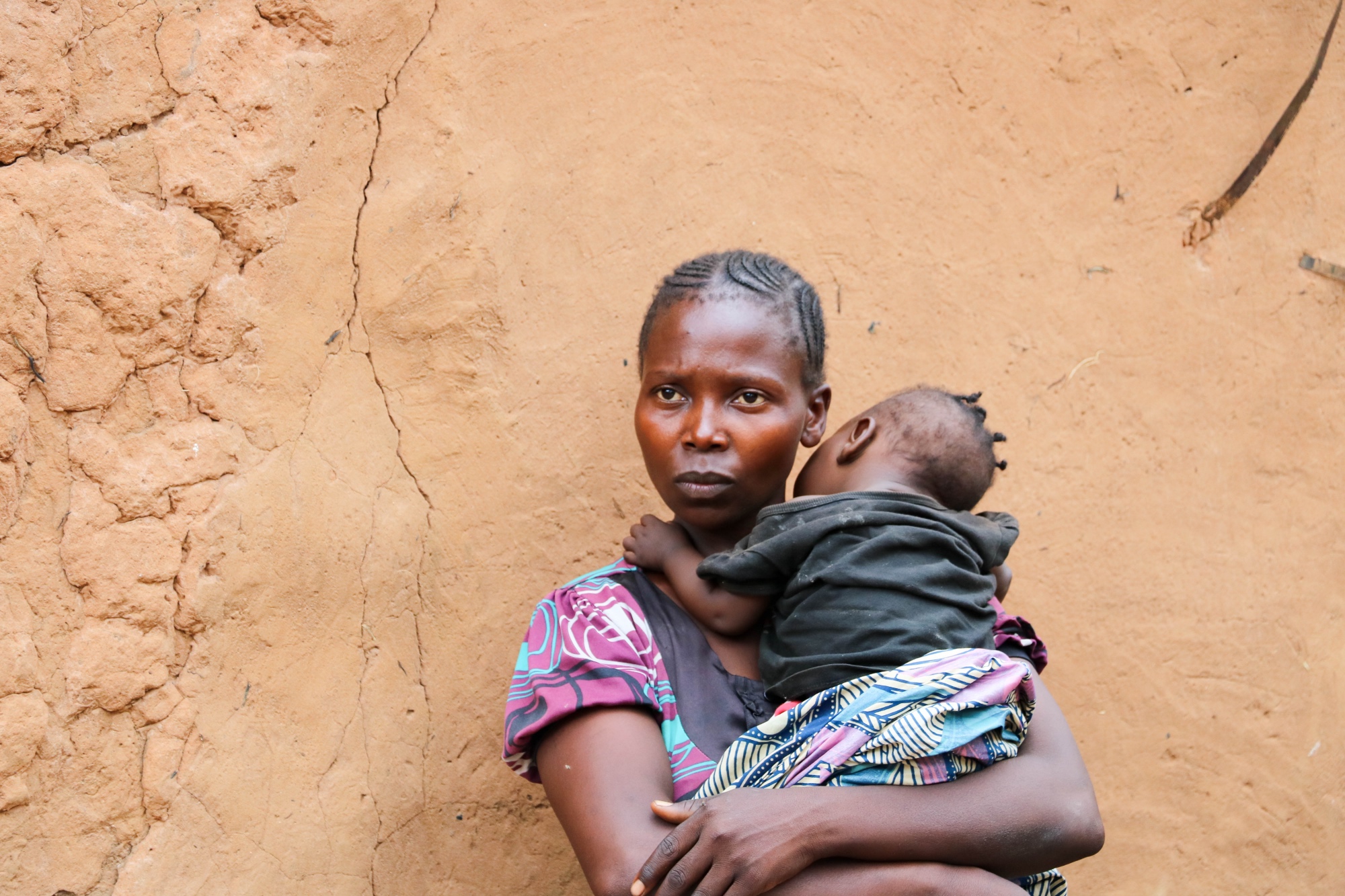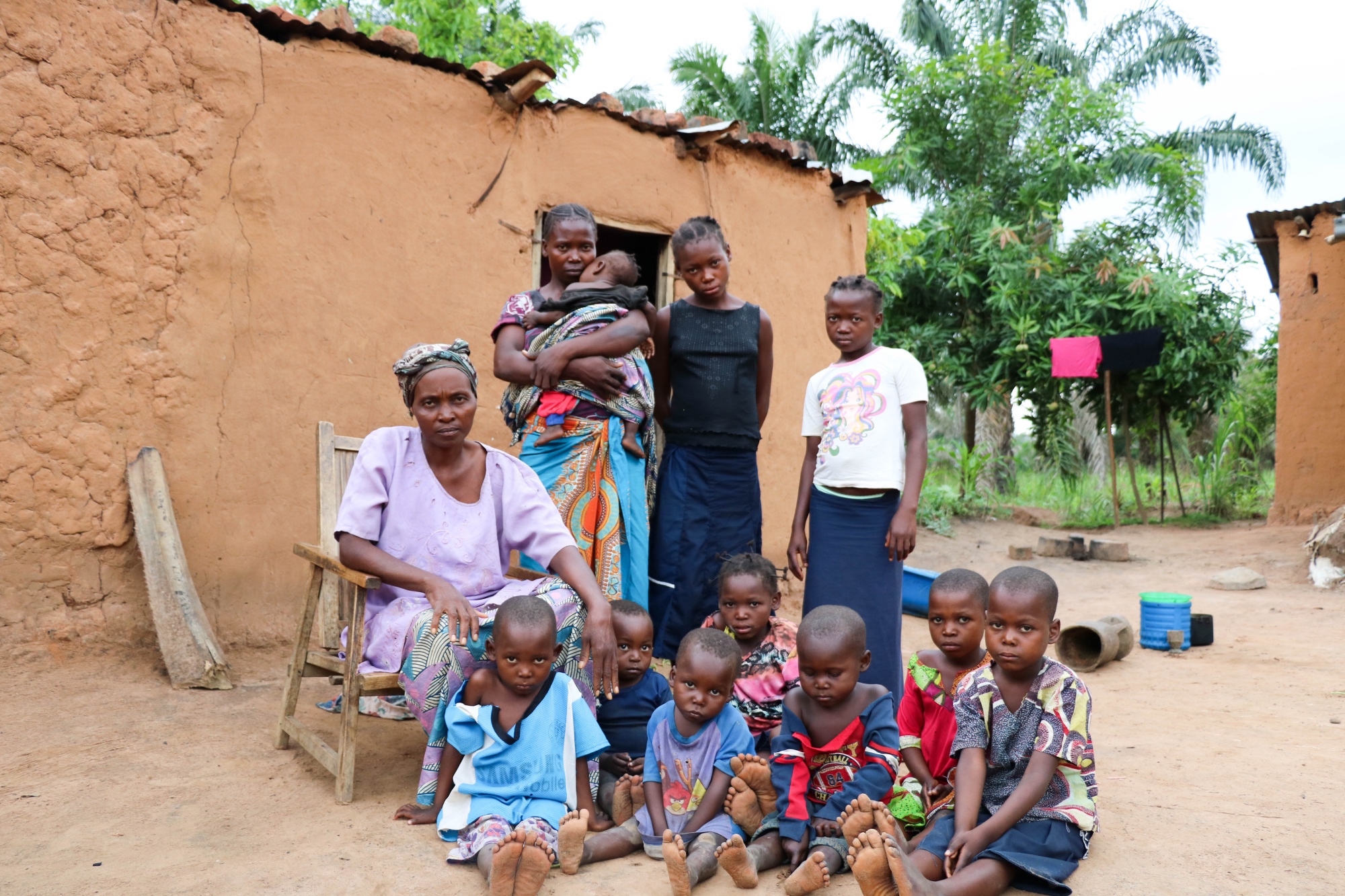Marthe | Paralyzed dreams after conflict in Kasai Central

It’s a short walk from World Vision’s new CFS near Kananga to Marthe’s house. We walk down through a few fields where crops are tentatively growing, planted when families returned from the bush in August, and past a destroyed school. Marthe limps to her family’s only chair and sits down to talk to us while her grandchildren play on the ground nearby.
She pulls her lavender tunic over her shoulder to show us the scars stretching down the left side of her chest and abdomen. Marthe was working in the fields this March when she was stung and left temporarily paralysed. Today she still struggles with pain and the use of her arm.
“I’ve been suffering ever since,” Marthe said.
Marthe began getting treatment at the local health clinic after her injury, but when the militia and military arrived a few months later in May, everything was upended.
Last summer a local chieftancy conflict 100km away quickly tapped into long-standing frustrations and exploded into widespread violence in the autumn. All five provinces of the Grand Kasais were affected, and violence against children was particularly widespread.
Marthe fled the conflict with her daughter Rose and her family; she had been living with them since she was widowed several years ago. Like many others, Rose’s husband went missing in the chaos at the end of May, and hasn’t been seen since.
Marthe, Rose, and Rose’s eight children spent three months sheltering on an island in the Lua river, 7km away from home, with many members of their community.
“When we were hiding, we really struggled to find food,” Rose remembers. “We ate nuts and carrots, cassava leaves, but we were too frightened to come back here and check on the house.”
“Instead we stayed in the bush and made a shelter with palm fronds. We took comfort in the fact that it wasn’t just us there, we were with our whole community. We all worked together to survive, and if someone found nuts, we’d all share and eat them.”
The family only returned home in the last two months after hearing messages on the radio telling them it was safe. Some of their neighbours had thought to grab one in the flight, thankfully, and they used it to follow events while in hiding. However, as well as losing their father, the family also returned to find their house sacked and animals gone.
“We had some chickens, ducks and rabbits before,” Marthe told me. “But when we fled the military ate everything.”
Marthe and Rose are now struggling to take care of the children. Between Marthe’s disability and the loss of Rose’s husband, making ends meet have become a major challenge. Rose goes to the field and works as best she can. She sells what she gathers at market – mangoes and papaya, coffee, and vegetables like amaranth, cassava leaves, and radishes.
But even so the family eats just once a day, and other times they eat only once every two days. The baby Rose holds is too weak to lift its head properly, and one of her little girls has a bad ear infection. Eggshell green liquid drips from her eardrum as we speak.
And Marthe’s treatment? She doesn’t have enough money to get the rest of the treatment, so she just stays at home with her grandchildren, who are also out of school.
World Vision has been working in Marthe and Rose’s community since early August, providing a food distribution as families left the bush, and now working on a Child Friendly Space to provide the children in the community with a safe place to play and work through their experiences. However, already struggling before the conflict, recovery is going to be a long road for Marthe’s family and the other families in their community.

